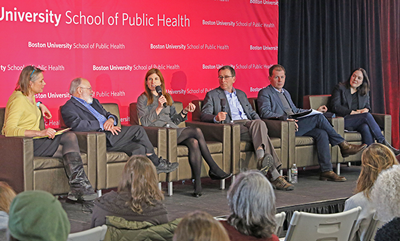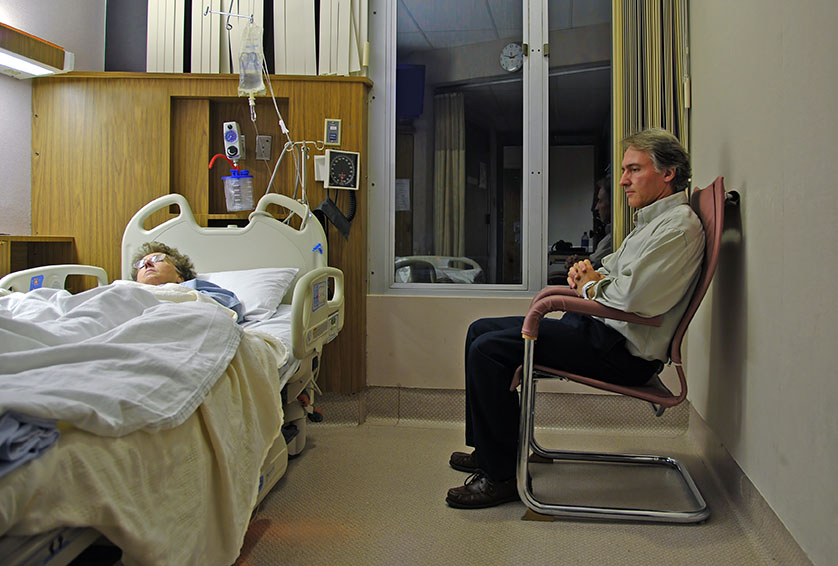
"The data is clear that 100 percent of us will die," joked Sandro Galea, dean and Robert A. Knox Professor of Boston University School of Public Health on Tuesday, February 12, 2019, at the symposium "Death and Dying: A Population Health Perspective."
Despite death's prevalence, it often goes undiscussed in daily life. How we perceive and confront mortality, though, is shaped by policies and attitudes that are important to address, concluded panelists.
Those joining Galea included Pulitzer Center grantee journalist Christopher de Bellaigue, Pulitzer Center Executive Director Jon Sawyer, and author Sam Harrington. The day-long gathering featured the segments "Living: How We Think About Death," "Dying: Strategies for Exercising Control," and "Grief: After We Die."
De Bellaigue, whose Pulitzer Center-supported project "Assisted Dying and Euthanasia" investigates attitudes toward assisted death in the United States and Europe, discussed physician-assisted death in the Netherlands, the "euthanasia capital of the world."
According to de Bellaigue, although the majority of the Dutch population opposed euthanasia when it was first legalized in 2002, the practice is now widely supported. "What interests me is where legislation leads to a change in dynamic, in character, in narrative," said de Bellaigue. "Public attitudes follow legislation."
Grief and mourning also were discussed at the symposium: "Death and dying is an issue that is characterized by a great disconnect between the universal experience we all share witnessing the deaths of our loved ones, and a reluctance to discuss honestly and publicly the policies and attitudes that have gotten in the way of ensuring the good deaths that we all no doubt seek," said Sawyer.
Read more about the notion of a 'good death' and find views from other symposium panelists here. Boston University is a Campus Consortium partner of the Pulitzer Center, which co-hosted the symposium along with the College of Communication, the Center for the Humanities, and the Program for Global Health Storytelling.






